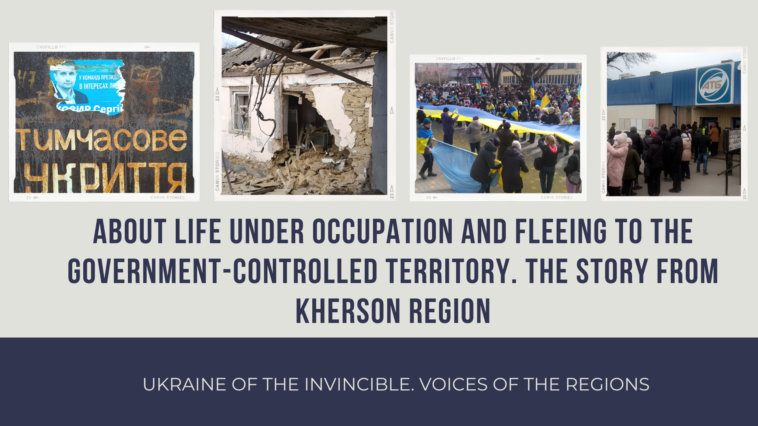“We all knew that war was inevitable. The capitalist environment of the world’s only socialist country made us vigilant and always ready to repel an attack. The victory of fascism in Germany, Hitler’s conquests in Central and Western Europe posed a direct threat to our western borders. And, nevertheless, we could not believe that war would come so unexpectedly, that the enemy would be so treacherous, although we could not expect anything else from fascism,” recalls Semen Kryvoshein in his book “From what I have lived and experienced.”
At that time, trouble came to the Kherson region from the West. On September 9, the Nazis broke through the front at the Kakhovka bridgehead and by mid-September occupied the northeast of the Kherson region, including Henichesk. Then Hitler’s troops launched offensives on Melitopol and the Crimea.
In search of salvation, people fled east. 81 years have passed, and people from the Kherson region are fleeing in the opposite direction. The ghost of Hitler is back.
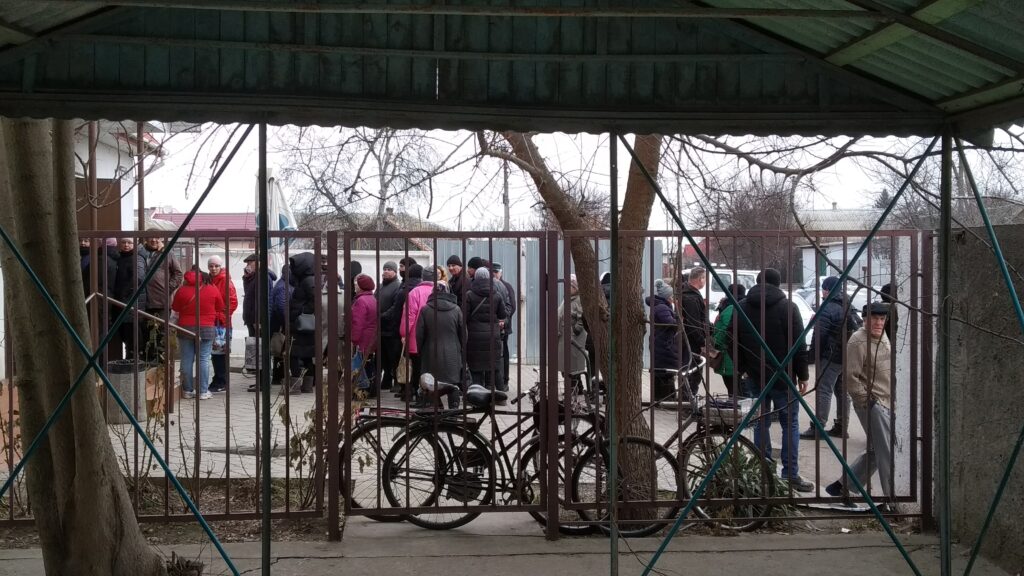
Following the Russian invasion, all major roads on the left bank of the Kherson region were blocked by the noon of February 24. Those who had not managed to go somewhere far away and safe by that time, found themselves in a hard “ring” of the occupants.
Almost all local residents failed to leave. On March 1, the occupants broke through into Kherson in armored vehicles and began advancing along the right bank of the Kherson region. After that, tens of thousands of Kherson residents could only cross the front line and enter the Ukrainian government-controlled areas by risking coming under fire and leaving their possessions at one of the many Russian checkpoints.
However, it was even more dangerous to stay in the temporarily occupied territory. The Russians unleashed a reign of terror from the first days. Murders and kidnappings of local people, looting do not stop in the Kherson region even for a day. Despite the fact that anyone can become a victim of invaders, the main risk group includes public activists, journalists, members of local self-government, former military personnel, and teachers.
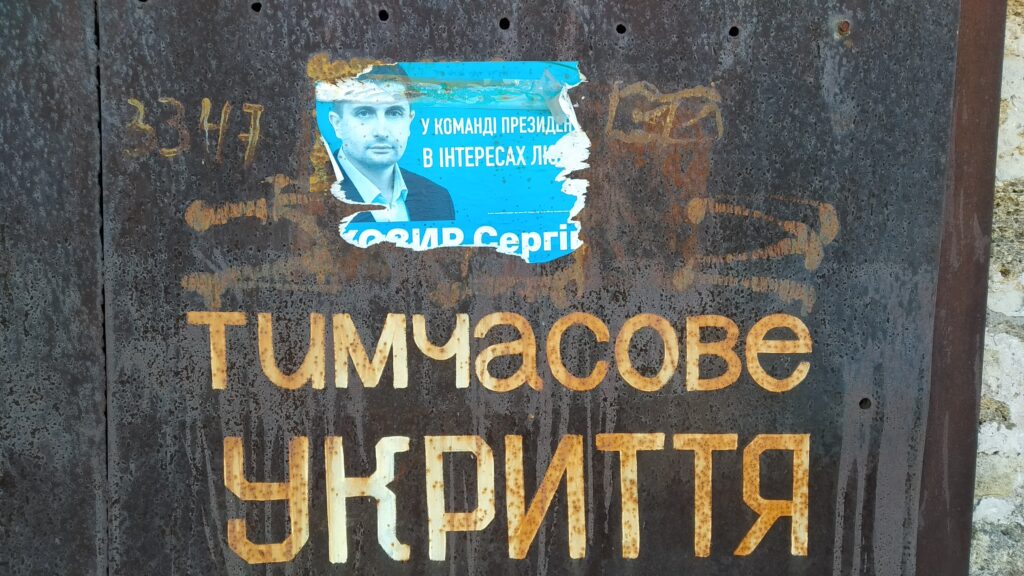
A director of an educational institution in the Kherson region agreed to tell us about what life was like under occupation and how she managed to leave for the controlled territory. The woman was afraid to give her name and which city she is from, since her relatives are still under occupation.
“Local government was very confused”
“The war started for me around 5 a.m. on February 24. We woke up to heavy explosions: first one, and then another 5-10 minutes later. I realized that the war had started, but I tried to calm myself down: “No, maybe it’s something else. Maybe I’m imagining things.” But very soon explosions were reported to have been heard all over Ukraine. I decided that something must be done. First of all, contact my relatives and help the people I work with.
We allowed all our staff not to go to work that day and advised them to stay at home with their families. As for me, I went to work at 7:30 a.m. because I knew that during hostilities, it was necessary to liquidate some documents that might interest the occupants, and take away some valuable things. Although no one had instructed me on this.
There was no fear, but there was anxiety. I was worried that I wouldn’t be able to do or foresee something. I called everyone I could again and urged them to stock up on gasoline, medicine, and food and to prepare to evacuate. I called everyone I knew, especially lonely people, asked how they were doing, told them what to do. I called my friends in the west of Ukraine, where everything was still calm. They immediately invited me to move in with them. I understood that sooner or later I would have to. But on that day I shook off that idea, because I hoped for a miracle. For the Ukrainian army. For people. And I just couldn’t leave that all.
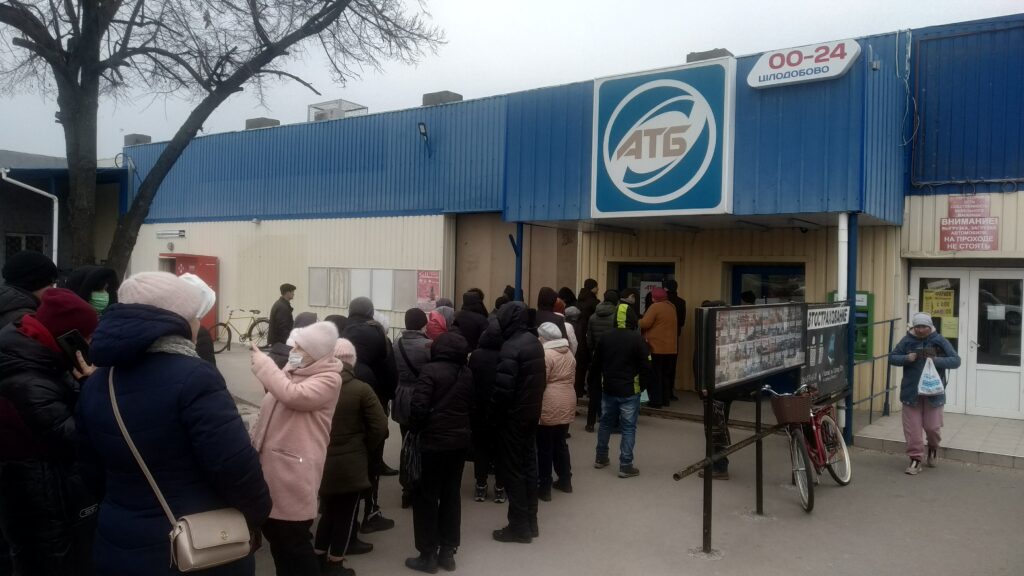
Our local government wasvery confused. They didn’t seem to understand that there is some course of action in wartime. I know that some structures acted more coherently and clearly: they destroyed important documents containing data on their staff. Unfortunately, we did not do this. They thought that maybe it would pass somehow. “Maybe the orcs won’t come, or maybe they’ll be more loyal to us.” But that did not happen; the occupants weren’t loyal to us.
Precious time was lost, a lot of things weren’t done, and important lists fell into the hands of the occupants. As a result, our people suffered: some were kidnapped, some were tortured, and some were robbed. And this might not have happened, at least on such a scale. The lack of the local authorities’ clear plan of action after the arrival of the occupants led to great misfortune.
Why did that happen? In my opinion, because of carefreeness. Everyone was perfectly aware of everything. But local authorities kept reassuring people: “Everything is under control. Don’t panic.” In the absence of an action plan, my colleagues and I had to act at our own peril and risk, on our own responsibility. We didn’t know if we were doing the right thing, but we tried to do something, to support and protect our people.”
“After the mayor was “removed from office,” the terror intensified”
“Everything changed in the life of my city when the occupiers “removed” the mayor from office and appointed their proteges.
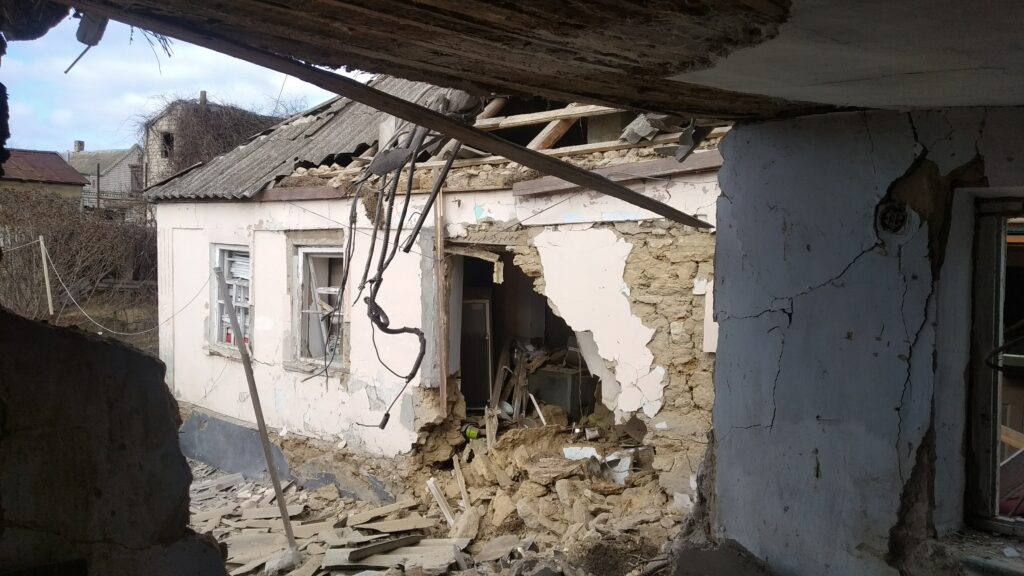
Immediately after that, the terror intensified. Checkpoints with Russian military personnel appeared all over the city. They were more like chaotic Mongol-Tatar raids: they moved throughout the city and stopped passers-by and passing cars here and there.
Many people were stopped and searched very harshly. Some people were taken “to the basement”. It was scary. I saw it with my own eyes. I saw mothers crying and begging orcs on their knees not to take their sons. I saw how a local “ATO participant” was searched. It was scary because you could not do anything and were afraid to even go outside. Being alarmed for my safety I had to constantly watch and look around: would I have time to run to the store? It was unbearable to stay in such conditions.
When I got to work, I tried not to use public transport. I walked quickly through some nooks and crannies, distant streets. It took me three times longer than usual, but I tried to avoid being seen by orcs. Because I had to go to work, I had to support people. It was very hard: no money, no medicine. The most depressing thing was that I did not understand what to do next. I felt desperate and hopeless: what if something happens to my health, or if I run into Russians somewhere? I did not know what to do in such a case. There was no one to turn to for help. We were all completely defenseless. I understood that in case of anything, the occupants would simply finish me off.
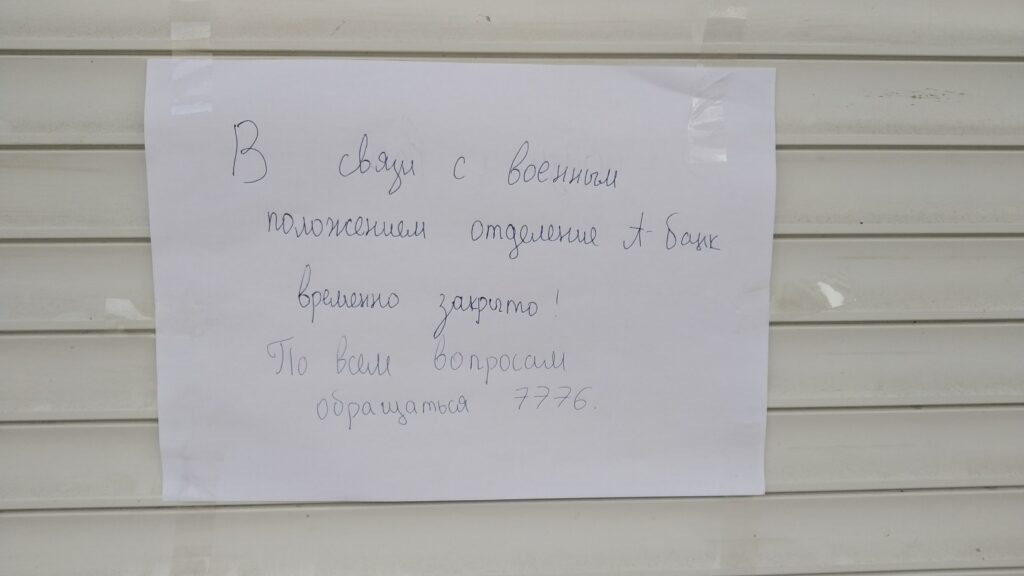
Everyone knows how morally difficult it is to realize that you won’t be able to help your friends or family if they are taken somewhere before your eyes. In no way…
From the first days, the occupants started looting. They broke equipment in the Administrative Services Centers, looted shops. I saw smashed shops, boarded windows and broken storefronts.
I understood that “all bridges had been burned” and I had to leave. Many of my colleagues asked me what to do. I shared my opinion, but did not impose it, because I believed that everyone should make their own decision about leaving.
Some colleagues managed to leave. But some remain there, under occupation. Some are old and do not have money to leave, some cannot leave their old sick parents. But I still try to keep in touch with all of them, try to encourage and help them. We have to live to see our victory.”
“The day we saw our soldiers was the happiest in my life”
“When the occupation noose began to tighten around us and Russians appointed their Gauleiters, I realized that sooner or later they would come for me. I knew that I would not collaborate with them, which is why they would take me to “the basement” at best, or would kill at worst. I had to leave.
Earlier, our friends tried to go to the Ukraine-controlled territory. They managed it with great difficulty. But no matter how difficult it was, the main thing is that it turned out to be possible. You had to cross the front line at your own peril and risk. There was a chance. And we dared. Thank God, we traveled that way in one day.
The day when we reached the first Ukrainian checkpoint in the “gray zone” was the happiest in my life (cries). Of course, we greatly disturbed them with our passage, our mere presence, they asked to go faster. But when you realize that in front of you is a native person who instead of smirking at you, humiliating you, demanding money or something else, blackmailing, simply smiles, hugs you and wishes a good trip – that moment and those feelings cannot be put into words (cries.)
Having passed the first Ukrainian checkpoint, we were flying like on wings, overwhelmed with elation and incredible positivity. We were offered help everywhere. They asked what we needed, refused our treats: “We don’t need chocolate, we can treat you ourselves.” Our emotions ran high. I will never forget it.
Later, when we didn’t manage to reach the place for overnight before curfew, some strangers from the street helped us. They asked how many of us there were, and helped to get all three of our cars with 12 persons to our destination. They asked if we had any clothes or anything to eat.
I will never forget how we stopped for the night in Vinnytsia. One passer-by noticed our confused faces and approached us, asking if we needed any help. We said we were looking for a place to spend the night. He helped, they settled us, gave us their contacts, so that those who follow us also have a place to spend the night.”
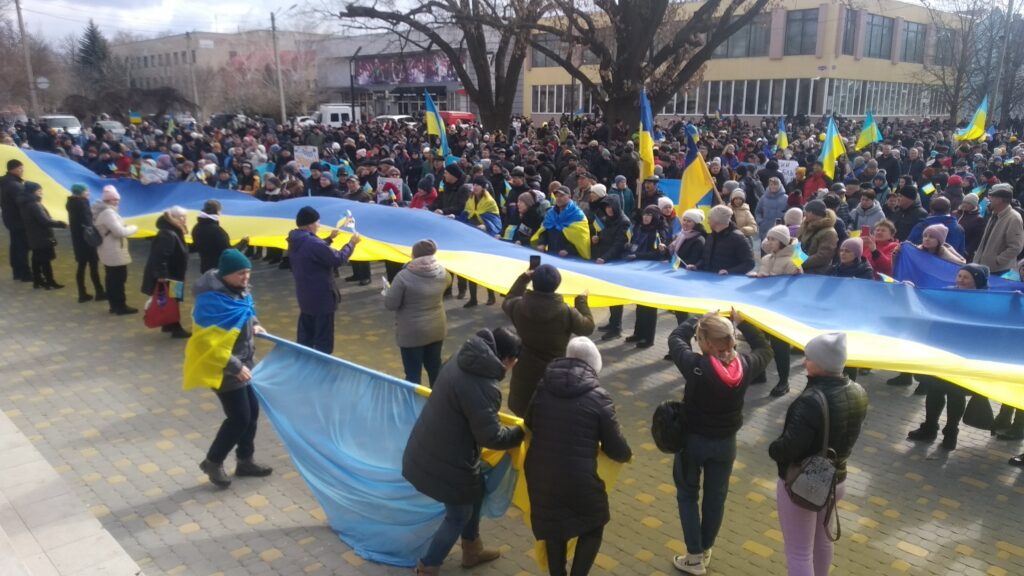
“What is my greatest dream?”
“My family and I have been living far from my home for several months now. And I dream, like everyone else, about victory. But I also dream that all those who are in captivity suffer as little as possible. I want them to survive. To have someone nearby who can help. I want all of them and all those who now remain in the temporarily occupied Kherson region to live to see our victory.”
Photo by Oleh Baturin
Oleh Baturin
16.07.2022
Article is prepared within the project “Countering Disinformation in Southern and Eastern Ukraine” funded by the European Union.

